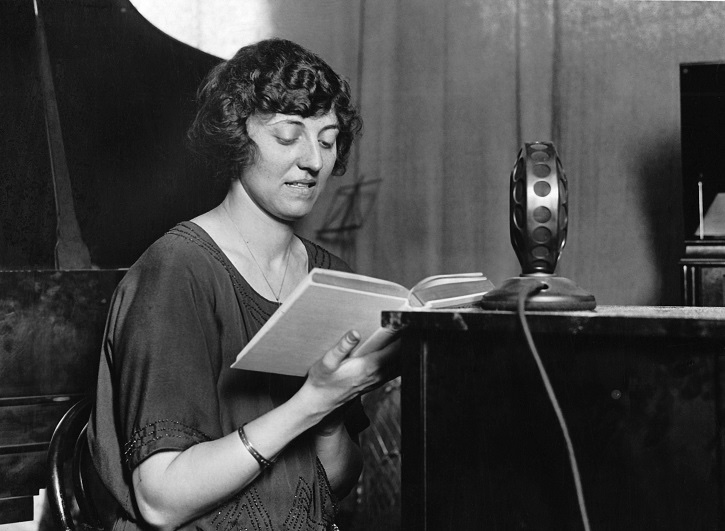
By: Emani Joleen Rosario (emani.rosario@upr.edu)
Radio has been an integral part of our lives for over a century. From entertaining and educating the masses to amplifying social change, it has been a powerful medium of communication. However, the active participation of women in the industry has not always been a priority.
According to RadioInk, “radio has been an industry dominated by men, ownership, management, and on-air talent are all areas where the male prevails”. Despite the efforts of many trailblazing women, gender disparities still exist in radio. In this article, we will explore the role of women in radio and highlight the challenges faced by women in the industry.
Pioneers in Radio
Women have been present in radio since its inception, however, their contributions and presence were often overlooked. Significant women figure like Gertrude Berg, Dorothy Thompson, and Kate Smith paved the way for upcoming generations by breaking the gender boundaries in the industry.
As mentioned by Kristin Skoog, Senior Lecturer in Media History at Bournemouth University, “the idea that radio could bring women together across national boundaries gained currency after the war, women were the driving force behind the creation of the International Association of Women in Radio in 1951, it was founded to promote peace by bringing women broadcasters together to share ideas and information”.
These women used their voices to bring forth change and challenged perceptions of gender roles. Berg, for instance, created her own radio show – The Goldbergs – which had a significant impact on women’s representation in the media.
The Evolution of Women Representation in Radio

The representation of women in radio has improved over the years. The changes have been gradual, with women taking up diverse roles and acquiring greater representation in programming than ever before. Despite this progress, women still face significant challenges like gender disparity, unequal pay, and lack of upper-level positions. Moreover, the glass ceiling still exists, preventing women from rising to the highest levels of management. In the opinion of Karen Muñoz, Radio Host at Ritmo FM-Radio, when asked about how the role of women in radio has evolved, she stated, “women have experienced significant improvements in their status over time, including the ability to vote, pursue education, and become professionals. This progress represents a positive change toward greater equality and autonomy for women, despite ongoing challenges. Although more work is needed to achieve true gender equality, it is important to celebrate the achievements made so far and continue fighting for a more just and equal world for all people.”
The Importance of Women’s Presence in Radio
Radio is an important platform for promoting gender equality and empowering women. Women’s voices are markedly different and can bring important perspective to discussions on issues of societal concern. Addressing the gap of women’s experience and representation on current affairs programs can better inform public policies and lead to more inclusive social change. Radio programming with a gender equity perspective could facilitate dialogue to engender equality, creating an alternative space to assert demands from different communities towards inclusive social policies.
Challenges Faced by Women in Radio
The road to gender equity in radio has been challenging. Women face many obstacles in the industry such as unconscious bias, the “boys club” culture, harassment, and violence. These challenges can discourage women from pursuing careers in radio or force them to leave the industry. Thus, leaving the industry vulnerable to a lack of diversity and missing opportunities to fulfill the potential of a broader perspective.
Voices Changing the Game: Women Making a Difference in Radio Today
Thankfully, women today continue to inspire and break gender barriers. Women like Gloria Steinem, Kai Wright, and Shaparak Khorsandi are making their mark in the industry, not just by showcasing their talents on the microphone, but also in leadership roles, production, and content creation. They have brought attention to issues that impact women and girls, both in their community and worldwide. By sharing their own personal stories and using their platform for advocacy, they challenge gender biased narratives in the industry. In some countries where women’s voices are largely suppressed, women radio hosts can be powerful agents of change.

